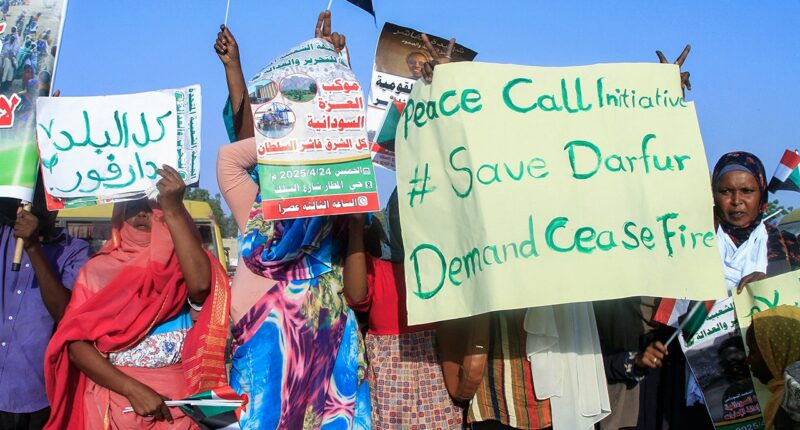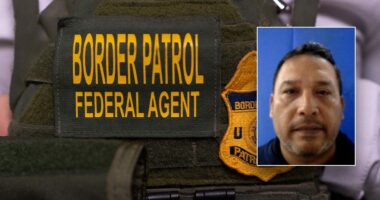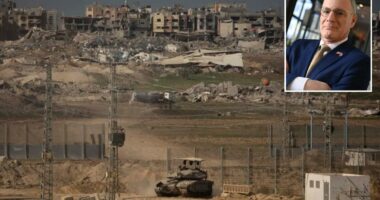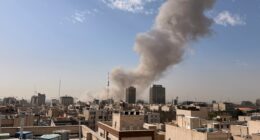Share this @internewscast.com
The U.S. State Department has taken a firmer stance towards Sudan’s warring factions, as the city of El Fasher in Darfur faces a 500-day siege, leaving many civilians trapped.
Sudan is experiencing the largest displacement crisis globally, with 13 to 15 million people forced from their homes and an estimated 150,000 fatalities since clashes began in April 2023 between the rebel Rapid Support Forces (RSF) and the Sudanese government’s Sudanese Armed Forces (SAF). The conflict’s origins can be traced back to tensions after the 2019 ousting of President Omar al-Bashir.
According to a report by an Independent International Fact-Finding Mission for Sudan to the U.N.’s Human Rights Council, “The RSF, during the siege of El Fasher and surrounding areas, committed numerous crimes against humanity, including murder, torture, enslavement, rape, sexual slavery, and forced displacement on ethnic, gender, and political grounds.”
In protecting U.S. interests, which include religious freedom in Sudan, the U.S. aims to curb negative Islamist influences in the Sudanese government and limit Iran’s regional activities that have led to instability, conflict, and civilian suffering.
Wahba also expressed concern over foreign interference by “bad actors” in Sudan. “Iran has supplied the SAF with drones and technical support, and recent reports suggest Iran’s interest in helicopter facilities. Iran views Sudan as a stepping stone for expanding its presence in Africa.”
Wahba noted, “Russia has engaged with both sides of the conflict. It seeks a naval base on Sudan’s Red Sea coast, granting Moscow direct access to key shipping routes, and benefits from gold smuggling through RSF-affiliated networks.”
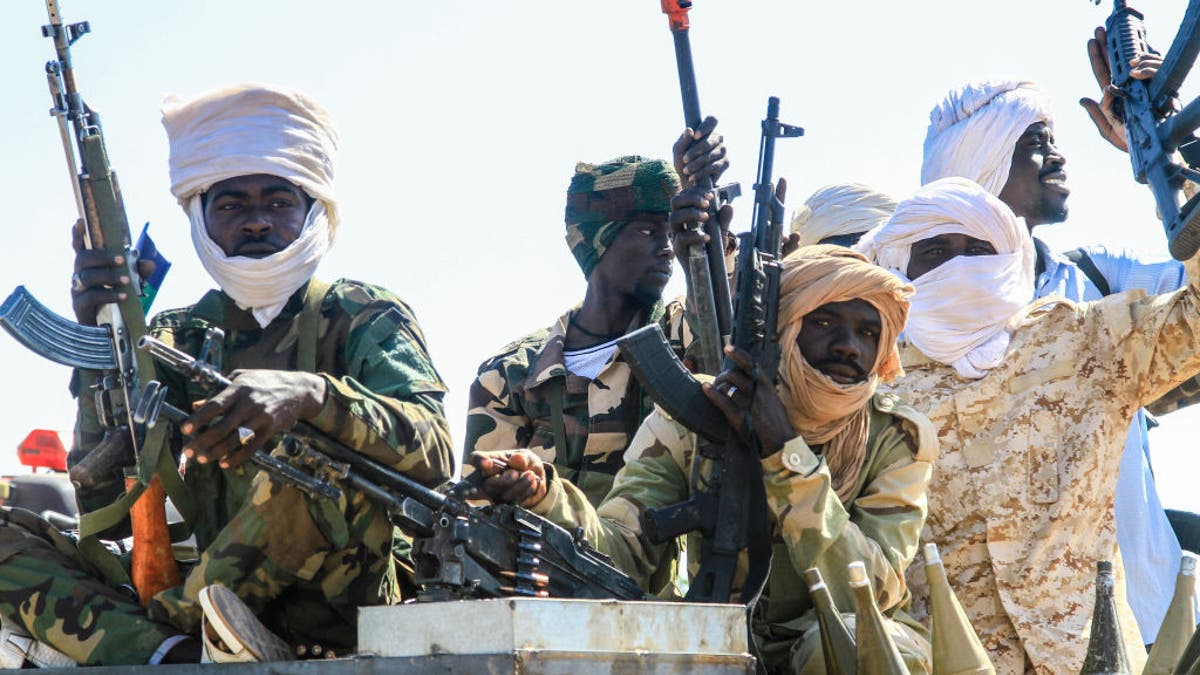
TOPSHOT – Fighters of the Sudan Liberation Movement, a Sudanese rebel group active in Sudan’s Darfur State which supports army chief Abdel Fattah al-Burhan, attend a graduation ceremony in the southeastern Gedaref state on March 28, 2024. Sudan’s war has already killed thousands, including between 10,000 and 15,000 in a single city in the western Darfur region, according to UN experts. The war pits army chief al-Burhan against his former deputy, Mohamed Hamdan Daglo, known as Hemeti, who commands the paramilitary Rapid Support Forces (RSF). (Photo by -/AFP via Getty Images)
“Regional powers are also advancing their own interests. Egypt has publicly backed the SAF, aligning with Sudan’s ruler, Abdel Fattah al-Burhan. Saudi Arabia is aligned with Egypt in backing al-Burhan. The United Arab Emirates, on the other hand, has provided significant support to the RSF, viewing its commander, Mohamed Hamdan Dagalo – widely known as Hemedti – as the custodian of Sudan’s gold exports and the path to its plans for port development along the Red Sea coast.”
Wahba concluded, “Burhan’s willingness to engage with Washington is a potential opening. This does not mean the U.S. should unconditionally back the SAF, but it could form the basis for a more defined U.S. strategy, one that makes U.S. engagement contingent on the SAF reining in, or removing, its Islamist militias and leadership.”
